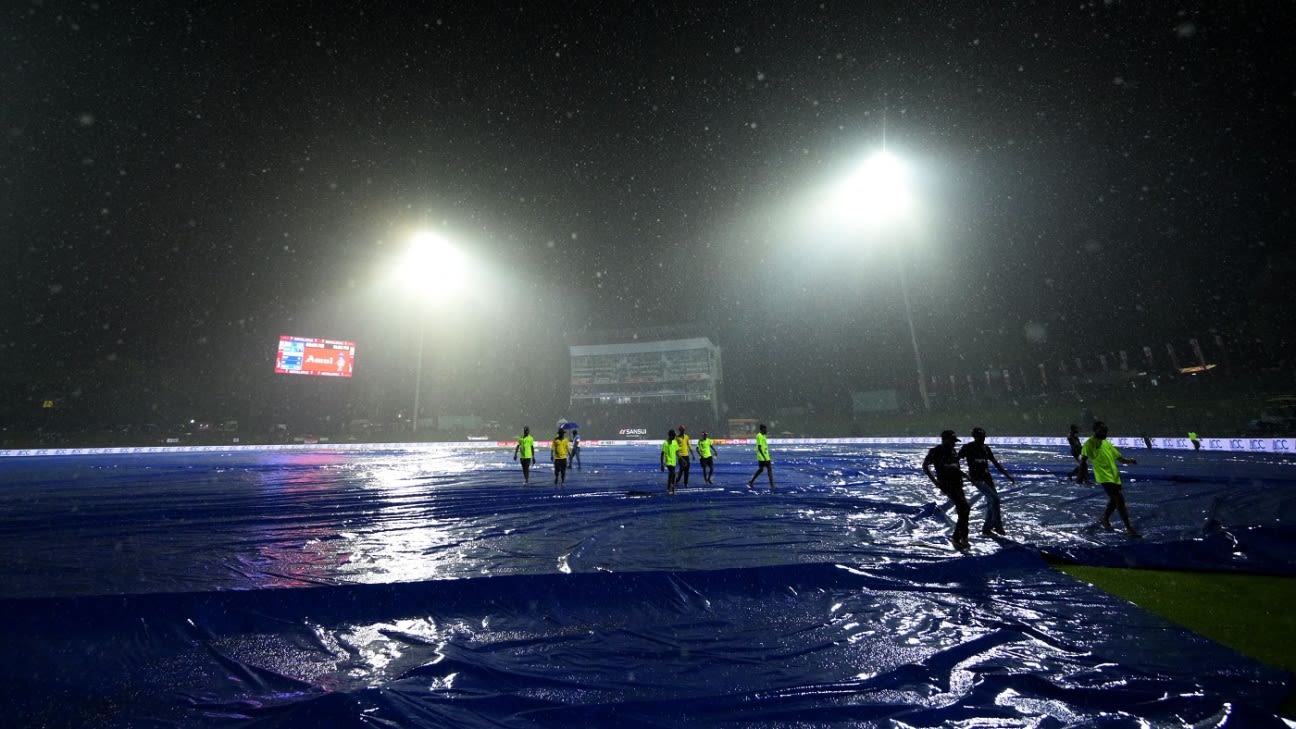
A deadlock between the PCB and the Asian Cricket Council (ACC) has thrown the planning for the last leg of the Asia Cup into disarray.
This has caused serious consternation at the PCB, which has called for an immediate ACC meeting to resolve the issue.
Firstly, PCB officials remain concerned that the Colombo matches – including the Super Four Pakistan vs India fixture – could be affected by rain; the city has seen substantial rainfall over the last few days, leading even to flooding in areas not far from the Khettarama Stadium.
Secondly, they are incensed that the ACC appears to be taking decision unilaterally on the scheduling of a tournament the PCB is hosting. Less than an hour after the ACC sent an email to stakeholders confirming Hambantota as the new venue, the ACC sent another email that contradicted the PCB, saying that the matches would stay in Colombo.
The PCB had originally wanted the whole tournament to be played in Pakistan, but the BCCI refused this on the basis that their government would not allow the Indian team to travel to Pakistan. Much of the tournament was then shifted to Sri Lanka.
In any case, SLC chief executive Ashley de Silva told ESPNcricinfo that Colombo will “definitely” host the matches as presently scheduled. He said the idea of moving those games to Hambantota was at the discussion stage only, and that no confirmation had been given to any stakeholders that the shift was definitely happening.
Cricket diplomacy: PCB and BCCI bosses in Lahore during the Asia Cup•PCB
However, various sources had told ESPNcricinfo that all boards (PCB, SLC, BCCI and BCB) had agreed to move the matches to Hambantota, and that only logistical hurdles remained to be overcome for such a shift to happen.
“A lot of fans had already made arrangements to watch the matches in Colombo,” de Silva offered as one reason why the remaining games would be played in Colombo as scheduled. “Also in the last few days it hasn’t been raining as much in Colombo.”
De Silva also cited Sri Lanka’s history of hosting ODIs, which it has largely done successfully despite the weather. In the last ten years, only five out of 84 men’s ODIs have failed to reach a conclusion. Of the abandoned matches, Saturday’s game was the only match to be abandoned in the month of September, which historically is not an especially wet month.
Jay Shah points to ‘several changes’ in PCB for confusion
A statement was released by Jay Shah, the ACC president, defending the scheduling of the tournament.
“In my capacity as ACC President, I was committed to finding a viable and mutually agreeable solution. To this end, I had accepted the hybrid model that was proposed by the Pakistan Cricket Board (PCB) in collaboration with the ACC management. However, it’s important to note that the leadership of the PCB underwent several changes, and this resulted in some back-and-forth negotiations, particularly regarding crucial aspects such as tax exemption and insurance for matches.
In response to initial PCB suggestions that the tournament be played in Pakistan and the UAE – aired again in recent days given the weather in Sri Lanka – Shah said there was a difference between playing 20-over games and 50-over games in the UAE in September.
“The Asia Cup 2022 edition was played in the UAE in the T20 format. It’s important to emphasize that the dynamics of a T20 tournament cannot be directly compared to those of a 100-over One-day format. In this context, ACC members received feedback from their respective high-performance teams, expressing concerns about playing One-day matches in the UAE in the month of September. Such a schedule could have potentially led to player fatigue and an increased risk of injuries, particularly right before the all-important ICC Cricket World Cup.
“The decision-making process regarding the Asia Cup 2023 format and venue was guided by a sincere desire to prioritize the well-being of the players, as well as the overarching interests of the sport. Ultimately, the goal was to strike a balance that would allow for a competitive and successful tournament while ensuring the health and readiness of the participating teams for ICC Cricket World Cup 2023.”
Andrew Fidel Fernando is ESPNcricinfo’s Sri Lanka correspondent. @afidelf